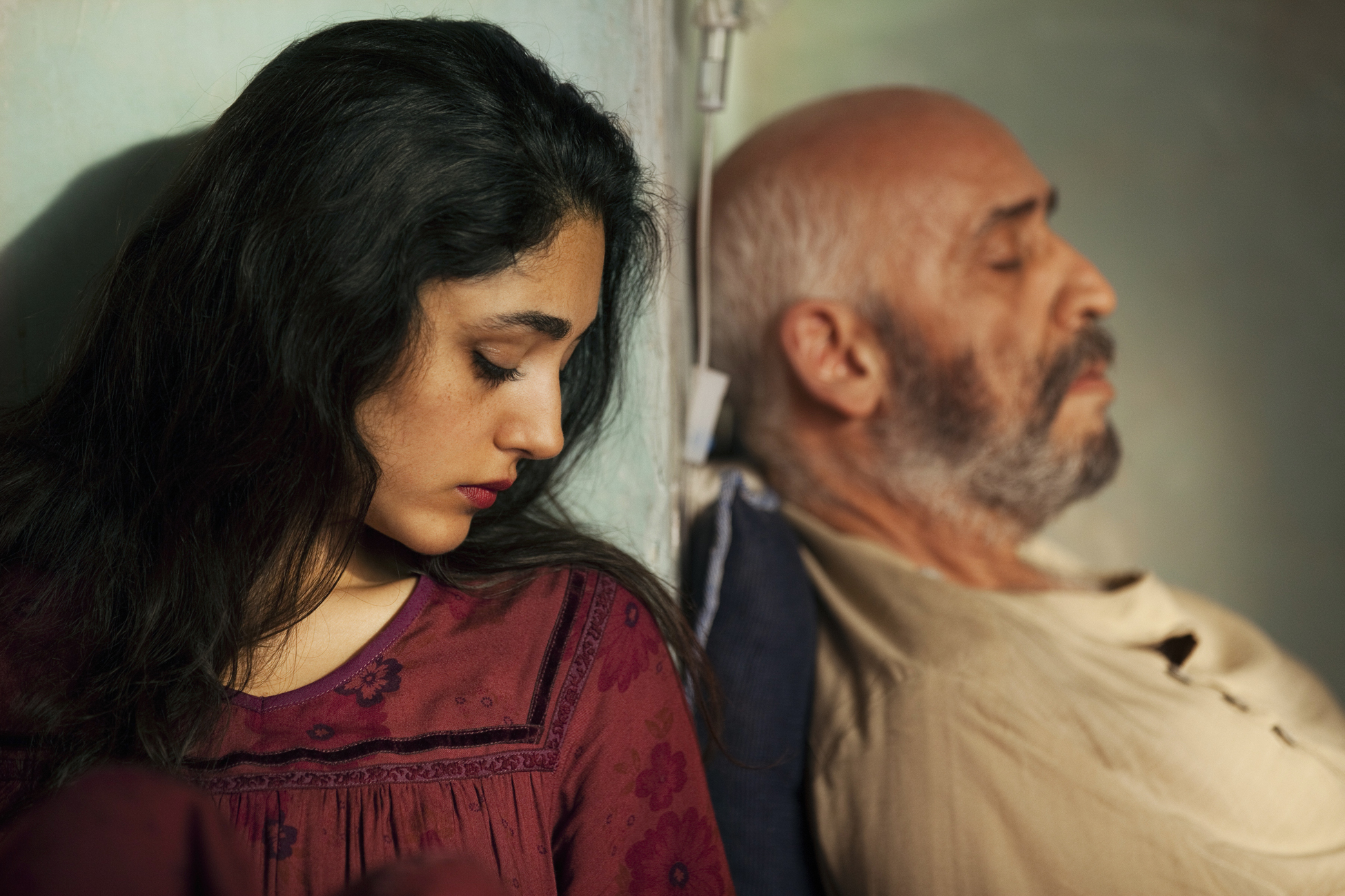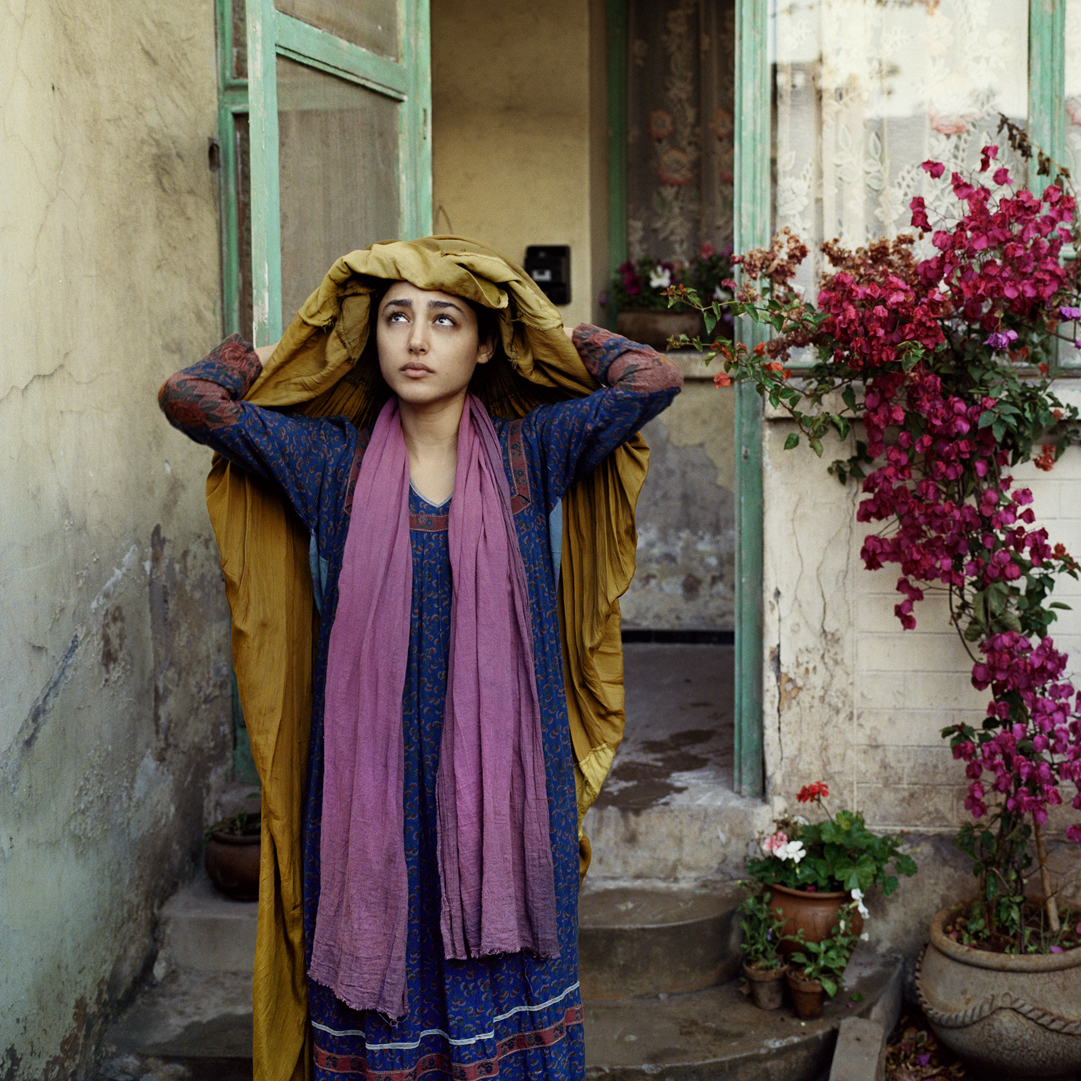Atiq Rahimi’s haunting film of love, war, and liberation in modern-day Afghanistan
‘Do you think she’s going to come? Do you think she’ll be here?’ repeatedly asked some friends of mine I happened to bump into in the queue for The Patience Stone – an Afghan film I had been eagerly awaiting ever since I set my paws on the TIFF brochure some weeks ago – as I eyed a mass of conspicuously Iranian-looking faces, fingering my ticket. Waiting in line, it seemed the audience that evening was more interested in catching a glimpse of Iranian actress Golsfhiteh Farahani than seeing a film from one of Afghanistan’s most renowned novelists and directors, Atiq Rahimi. Indeed, ever since the 20-something actress made headlines in the Iranian media after appearing alongside Leonardo DiCaprio in Body of Lies, and more recently, bearing her breasts for Jean-Baptiste Mondino’s Corps et Ames project, Iranians just can’t seem to get enough of their country’s exiled cinematic sensation.
However, I must admit that all the elation surrounding this starlet is not without due cause; Farahani is more than just a pretty face, as her performance in The Patience Stone clearly showed. Set in a war-ravaged city in modern-day Afghanistan (and based on Rahimi’s novel of the same name), the film revolves around the life of a young woman (Farahani), who, in-between enduring constant gunfire and explosions in her own backyard - courtesy the Taliban - takes care of her comatose husband. Having been shot in the back of the neck as a result of a personal squabble, the woman’s husband has been reduced to a virtually lifeless mass, which she has no other option but to tend to.
Although we know relatively little about the woman and the man in the first hour of the film, except for their current situation and the fact that the husband is much older than the wife, the audience gradually learns about her predicament through her one-sided ‘conversations’ with her husband. Having left her kids in the relatively safe company of her aunt, the woman finds herself all alone with a pitiful pseudo-corpse, and as such, finds no solace (and recourse from madness) other than in talking to it.
As the woman progressively ‘opens up’, she relates not only her current emotions and inner feelings, but also her entire life story. Born to a cold, emotionless quail-fighting daddy of a man – who among other meritorious deeds, gave away his eldest daughter to honour a bet he lost – she was hastily married off at 18 to the dagger of a man she never knew, who is now nothing but a senseless being. Like her father, we find that her husband was a passionless soul who cared for little other than his ‘honour’, and was anything but a Romeo – or rather, a Majnun.

Such is the storyline of the film, until the occurrence of a defining scene wherein a Taliban commander and his stuttering aide find their way into the woman’s house during a raid. In order to protect herself, the woman feigns whoredom, as the Taliban - not wishing to sully their souls - favour only the chaste. However, what begins as a white lie in self-defence soon turns into an accepted fact, and we soon find our dashing stutterer throwing a flurry of banknotes at the woman, asking ‘How much?’ (not that it mattered, really, with that Kalashnikov in his hand).
I’ve rarely come across metaphors that are so simple to comprehend, and which so beautifully illustrate a story
Truly, it is in the ensuing scenes that Rahimi’s characters come to life. In the indefinable relationship that brews between the woman and her ‘client’, we witness the sexual ‘liberation’ of a woman who was never kissed, and the softer, tragic dimension of a Taliban soldier whom one would most likely pigeonhole and prejudge as a ruthless brute. Accordingly, the woman, in ‘speaking’ with her husband becomes more brazen and outspoken than ever, going so far as to even adorn herself with lipstick while addressing him, and it’s just when we finally see her eyes twinkling with a glimmer of hope that the movie takes a rather unexpected turn.
Integral to Rahimi’s film is the metaphor of the Patience Stone (Sang-e Saboor), which he brilliantly utilises to depict the inner struggles of his protagonist. According to a tale rooted in Iranic folklore, if one is without a confidante, they can always share their secrets and feelings with a stone – a rather excellent companion, who neither judges one, nor talks back. As well, after a certain period of time, the stone will shatter into pieces, signalling the moment when ‘one shall be set free’, as the woman’s aunt explained to her in a pivotal scene.
Watching the film, its easy to tell what the stone refers to, and after learning about the myth, one can somewhat foretell what will happen to Rahimi’s characters. While other films I’ve seen have employed extremely poignant metaphors, I’ve rarely come across ones that are so simple to comprehend, and which so beautifully illustrate a story; and it’s primarily for this reason, perhaps – much more than the acting or cinematography – that The Patience Stone is a gem of a film, in my book at least!
Luckily for my friends, alongside Atiq Rahimi, Farahani was indeed present, and was greeted with much ardour and applause. After answering a series of questions from within the audience, one Afghan woman in the front row touchingly addressed Farahani, commenting that her performance gave a voice to a silenced and oppressed community, which desperately needed to be heard.
As Rahimi remarked moments before the film, ‘May all your stones be rolled away’. Indeed, may all those in dire straits – not only the silenced women of Afghanistan - find the freedom they seek.

